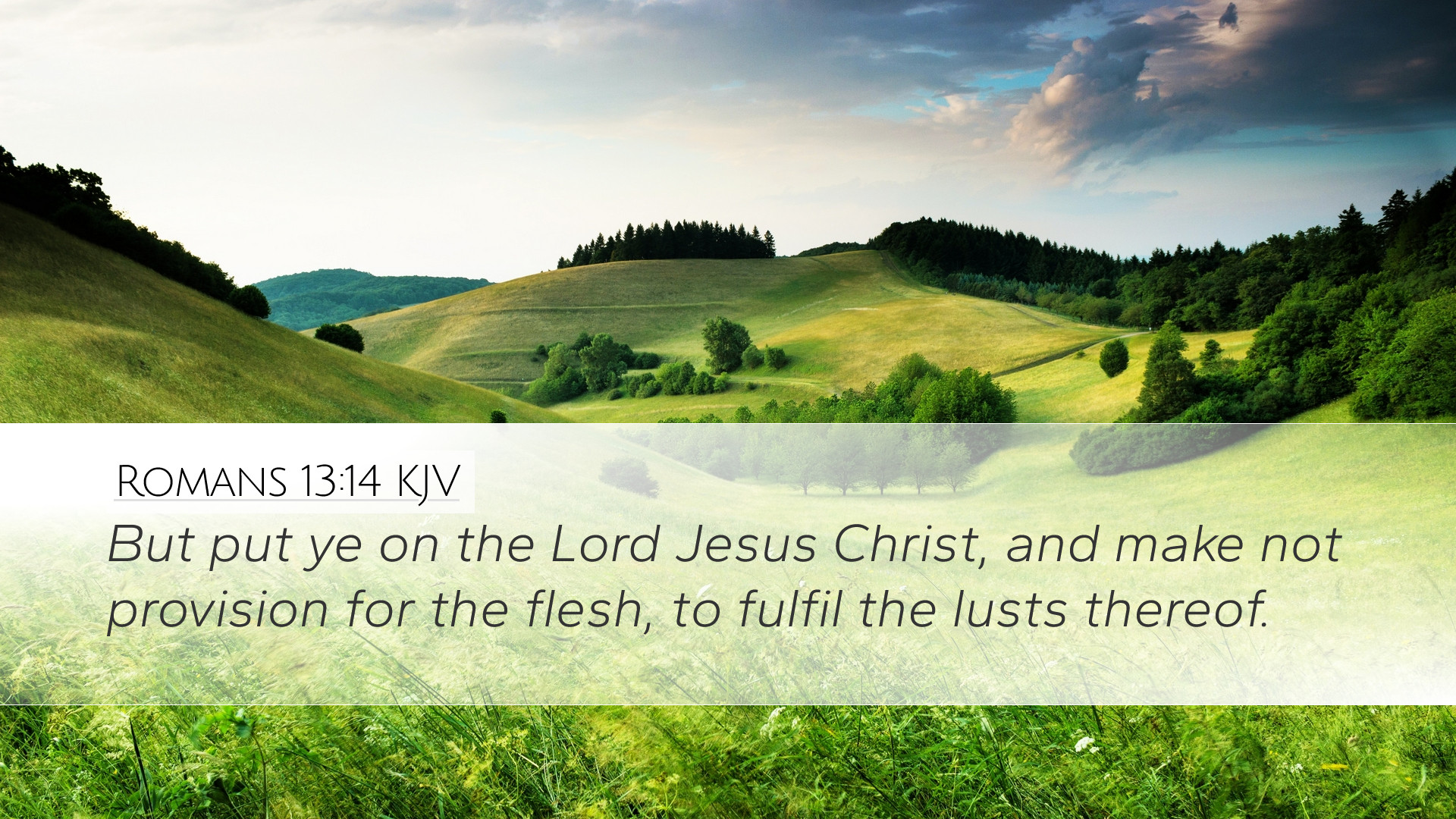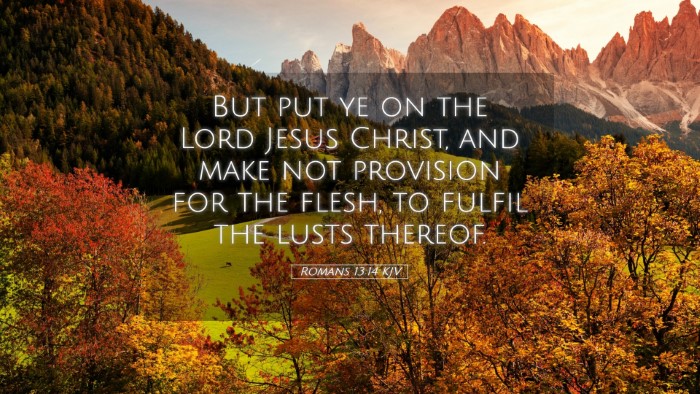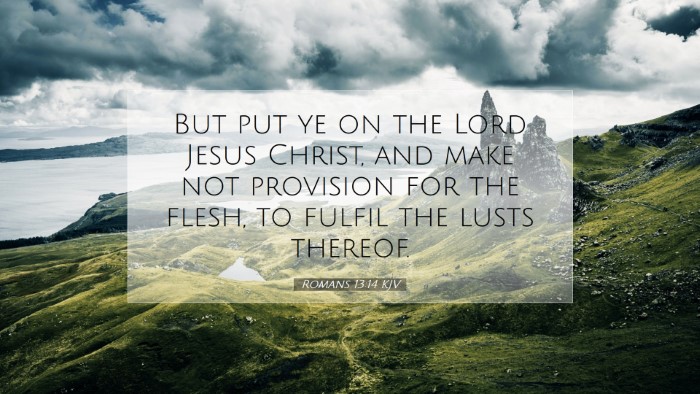Old Testament
Genesis Exodus Leviticus Numbers Deuteronomy Joshua Judges Ruth 1 Samuel 2 Samuel 1 Kings 2 Kings 1 Chronicles 2 Chronicles Ezra Nehemiah Esther Job Psalms Proverbs Ecclesiastes Song of Solomon Isaiah Jeremiah Lamentations Ezekiel Daniel Hosea Joel Amos Obadiah Jonah Micah Nahum Habakkuk Zephaniah Haggai Zechariah MalachiRomans 13:14
Romans 13:14 KJV
But put ye on the Lord Jesus Christ, and make not provision for the flesh, to fulfil the lusts thereof.
Romans 13:14 Bible Commentary
Commentary on Romans 13:14
Verse: "But put on the Lord Jesus Christ, and make no provision for the flesh, to gratify its desires."
Introduction
This verse from Romans encapsulates profound theological and ethical implications for Christians. Paul calls believers to a life that is not only distinct from worldly values but also deeply rooted in the person of Jesus Christ. This commentary synthesizes insights from various public domain commentaries to provide a comprehensive understanding.
Exegesis of the Text
Romans 13:14 serves as a pivotal exhortation amidst Paul's broader discussion of Christian conduct and societal responsibilities. The apostle emphasizes the necessity of identifying with Christ ('put on the Lord Jesus Christ') and warns against the tendencies of the sinful nature ('make no provision for the flesh').
-
Put on the Lord Jesus Christ:
Matthew Henry remarks that 'putting on' implies adopting the character and mindset of Jesus. It suggests an active commitment to live in conformity with Christ's example, exhibiting His virtues such as love, humility, and righteousness.
-
Make no provision for the flesh:
Albert Barnes interprets this as a directive against seeking opportunities to indulge sinful desires. This part of the verse highlights the importance of vigilance in the believer's life—avoiding circumstances or thoughts that could lead to moral failure.
Theological Implications
In this passage, Paul delineates the dichotomy between a life led by the Spirit and one led by the flesh. Adam Clarke notes that this contrast underscores the believer's new identity in Christ, where the former self is left behind in favor of a life characterized by Christ-like attributes.
-
Identity in Christ:
By 'putting on' Christ, believers embrace a transformative identity that transcends their former lives. This act of dressing oneself in Christ signifies moral and spiritual renewal.
-
Resistance to Sin:
The call to make no provision for the flesh reflects a proactive stance against sin. The Greek term used ('prosdokíā') implies not merely refraining from sins but actively rejecting opportunities that lead to sin.
Practical Applications
For pastors, students, theologians, and bible scholars, the exhortation of Romans 13:14 offers practical wisdom for living out one's faith.
-
Daily Reflection:
Each day, believers are encouraged to reflect on the ways they can 'put on Christ.' This involves not just a mental assent but tangible actions that reflect His character.
-
Accountability:
Engaging with a community that emphasizes accountability can help believers resist temptations. Churches might implement small groups focused on this aspect of Christian living.
Conclusion
In conclusion, Romans 13:14 compels Christians toward a life that manifests the character of Christ while sternly advising against compromising with sinful desires. The combined insights from the likes of Matthew Henry, Albert Barnes, and Adam Clarke enhance our understanding of this vital scripture, reminding us that our identity in Christ must influence our conduct and choices.


